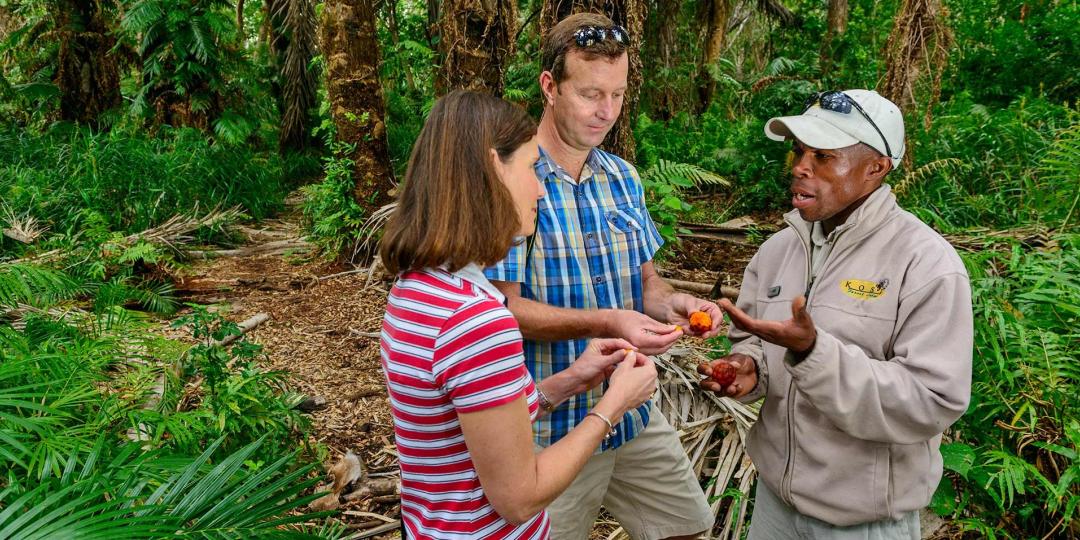Lodges and operators need to maintain and showcase a genuine commitment to sustainability to guard against travellers losing interest due to the ubiquitous use of the term.
Shane Raw, Sustainability Officer at Isibindi Africa Lodges, told Tourism Update that this “green fatigue” could result in travellers seeing touted sustainability initiatives as a “superficial marketing strategy or hollow gesture”.
“To prevent this, it is crucial to maintain a genuine commitment to sustainable practices rather than merely paying lip service to the idea,” said Raw. “This involves setting clear goals, implementing sustainable practices, measuring and reporting progress, and engaging stakeholders in meaningful dialogue.”
Innovation and constant evolution of the discourse around sustainability are also crucial to maintain relevance, according to Raw.
Growing demand for responsible tourism
He pointed out that there was, however, unprecedented and growing demand for responsible tourism practices that involved minimising negative impacts on the environment and local communities while maximising the positive impact on both.
“This includes community partnerships, employing local community members in the lodge, supporting local businesses, respecting local cultures, and engaging in other activities that promote conservation and social responsibility.” Raw added that travellers were increasingly showing a preference for eco-friendly lodges prioritising practices such as energy efficiency and renewable energy, waste reduction, water conservation and the sourcing of local and organic food that promoted fair trade and ethical farming practices.
His comments are backed up by a vast body of global research, including Booking.com’s 2023 Sustainable Travel Report, which highlighted that 74% of a surveyed sample of more than 33 200 respondents from around the world wanted travel companies to offer more sustainable travel choices (up from 66% in last year’s report).
Delicate balance
Raw highlighted that one of the most difficult challenges was balancing sustainability initiatives' economic viability with the dangers of over-tourism.
“It can be tricky to find the balance between enough tourism to sustain the investment in infrastructure and provide meaningful and supportive economic benefits to the environment and the surrounding community, and over-tourism which can cause environmental degradation, place excessive strain on natural resources and cause disturbance to wildlife and local communities.”
Involving local communities in decision-making processes, and ensuring equitable distribution of the benefits of tourism, can also be a challenge.
“The benefits of tourism may not be seen to be distributed equitably among communities, leading to socioeconomic disparities and discord. Also, involving local communities in decision-making processes and ensuring their voices are heard requires effective communication and collaboration,” said Raw.
Isibindi Africa’s success story
In 2019, The Isibindi Foundation was established to formally incorporate 23 years of experience in community and conservation projects.
“This has proven to be vital in the process of furthering and overseeing the relationship between our lodges and the communities and environment in which they exist,” said Raw.
Through a foundation levy, The Isibindi Foundation serves as a conduit for each guest at one of the group’s four lodges to be philanthropic travellers, having a positive impact on both communities and conservation.
The foundation continuously monitors and improves upon sustainability practices at lodges, while also identifying, implementing and managing initiatives.
“The scope of the community-based projects is vast and includes skills upliftment and training, support for education and supplemental feeding schemes, development and support of small business opportunities, the provision of basic amenities such as water supply and more,” said Raw.
Conservation projects include increasing awareness and education in neighbouring communities, support for endangered species projects and anti-poaching units as well as habitat restoration.
“As more individuals and organisations make consumption decisions based on environmentally and socially responsible criteria, it will become increasingly important to be able to demonstrate tangible actions, transparency and accountability,” Raw concluded.























